

Recently, the China-Egypt High-Quality Cooperation and Development Seminar on Traditional Chinese Medicine (TCM), themed “Deepening Mutual Learning Among Civilizations and Writing a New Chapter in China-Egypt Educational and Scientific Cooperation”, was successfully held in Cairo, Egypt. The event was hosted by Nanjing University of Chinese Medicine (NJUCM).
Liao Liqiang, Chinese Ambassador to Egypt and Representative to the League of Arab States, and Professor Cheng Haibo, President of NJUCM, attended the seminar. Nearly 40 participants joined the meeting, including Professor Mohamed Elashhab, President of the Egyptian Association of Traditional Chinese Medicine; presidents and experts from six Egyptian universities—Benha National University (BNU), Egyptian Chinese University (ECU), Menoufia University (MU), Alryada University for Science and Technology (RST), Badr University in Cairo (BUC), and Sinai University; representatives of the Egyptian Chinese Friendship Association; Professor Nasser Abdelaal, President of the Egyptian Alumni Association in China; and Member of Parliament Laila Ahmed Abou Ismail, along with other distinguished figures promoting China-Egypt friendship.
In his welcome address, President Cheng Haibo highlighted that both China and Egypt are ancient civilizations with a long history of exchange—from the camel bells of the Silk Road to the blueprint of the Belt and Road Initiative. The two countries have become a model of mutual learning and win-win cooperation. He emphasized that TCM is a treasure of the Chinese nation, embodying thousands of years of health philosophy and practical wisdom. President Cheng expressed his hope that, with the guidance and support of the Chinese Embassy in Egypt, NJUCM and Egyptian universities and institutions would continue to deepen all-round cooperation, strengthen talent training and exchange, enhance joint scientific research, and promote cultural dialogue and global health governance—working together to advance the international development of traditional medicine.
Ambassador Liao Liqiang noted that Egypt was the first Arab and African nation to establish diplomatic relations with the People’s Republic of China. Currently, practical cooperation between the two countries is progressing steadily, with a notable improvement in the quality of cooperation. The Chinese side attaches great importance to international cooperation in the field of TCM and is committed to enabling TCM to benefit people around the world. Ambassador Liao also conveyed President Xi Jinping’s congratulatory message to President Abdel Fattah el-Sisi on the opening of the Grand Egyptian Museum, shared the latest spirit of the Fourth Plenary Session of the 20th CPC Central Committee, and expressed hope that China and Egypt would further align development strategies, deepen cooperation in health and medical fields, and enrich the connotation of the China-Egypt comprehensive strategic partnership.
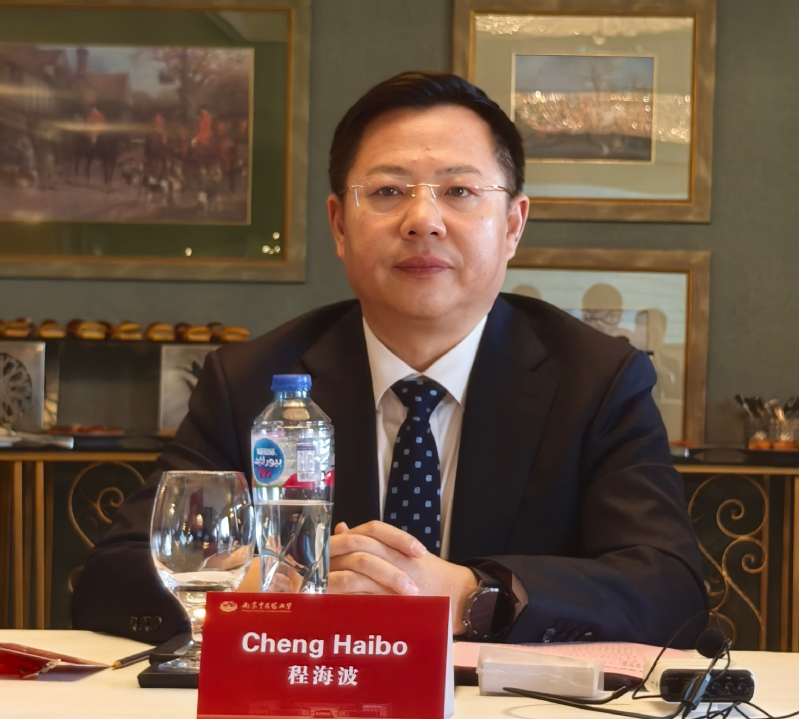
President Cheng Haibo delivers his address
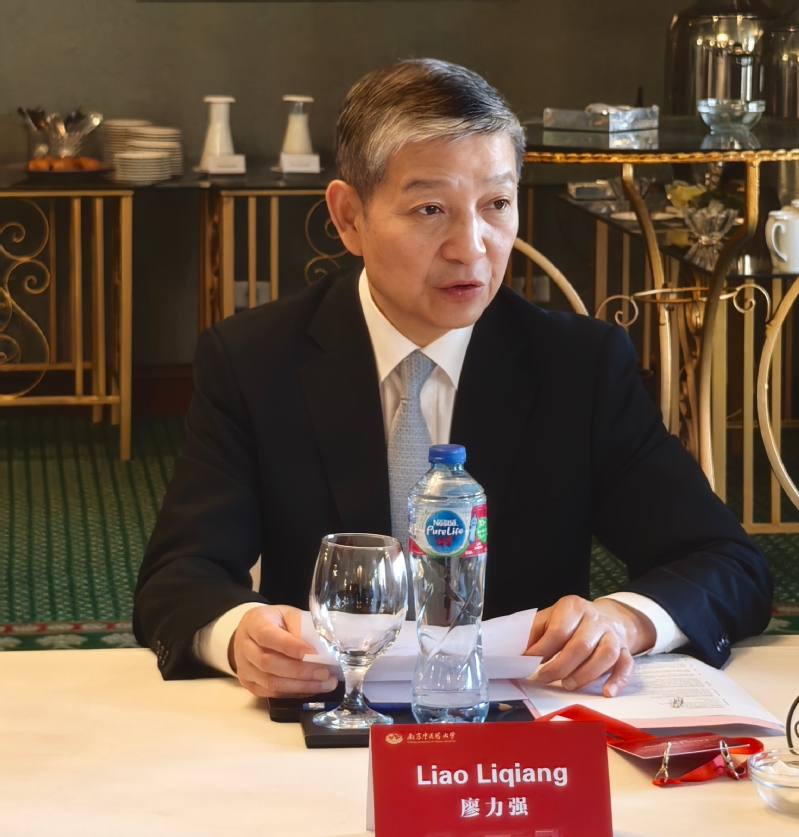
Liao Liqiang, Chinese Ambassador to Egypt and Representative to the League of Arab States, delivers a speech
During the discussion session, representatives from China and Egypt engaged in in-depth exchanges on topics including TCM education, scientific research cooperation, and faculty-student exchanges. Multiple consensus agreements were reached. Witnessed by Minister Counselor Lu Chunsheng at the Chinese Embassy in Egypt, President Cheng Haibo signed several cooperation agreements on behalf of NJUCM with Benha National University, Egypt-China University, Menoufia University, the Egyptian Chinese Friendship Association, and the Egyptian Association of Traditional Chinese Medicine.
Building on the existing foundation of substantive cooperation, NJUCM and the Egyptian universities and organizations will, under the new agreements, explore new opportunities for joint talent training, collaborative research, and cultural exchange—striving to create a model of high-level cooperation between China and Egypt in TCM education, research, and people-to-people exchanges.
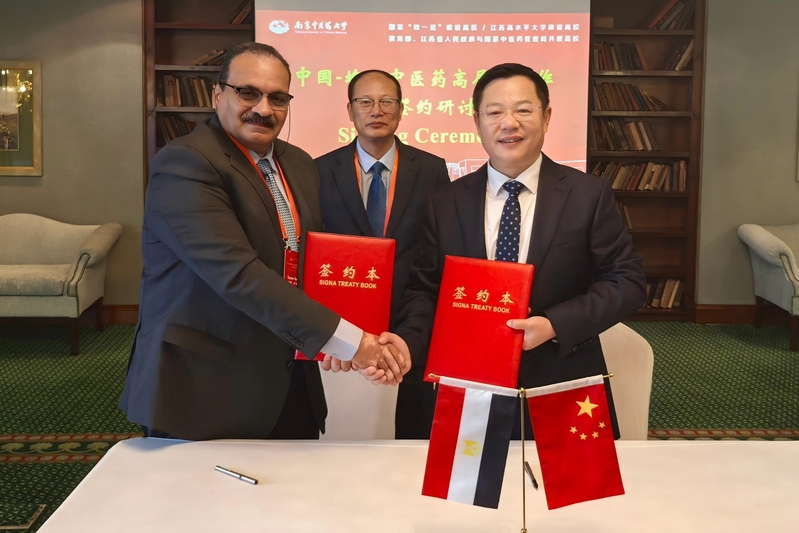
President Cheng Haibo, on behalf of NJUCM, signs a cooperation agreement with Benha National University
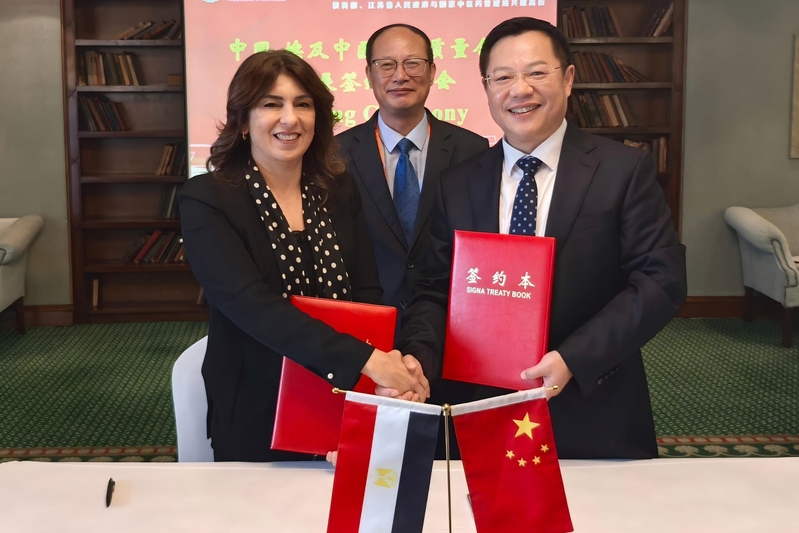
President Cheng Haibo, on behalf of NJUCM, signs a cooperation agreement with Egyptian Chinese University
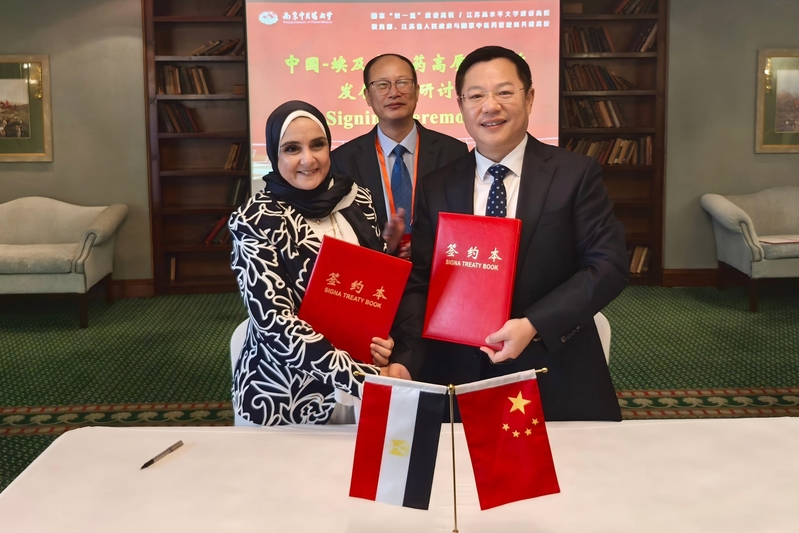
President Cheng Haibo, on behalf of NJUCM, signs a cooperation agreement with Menoufia University
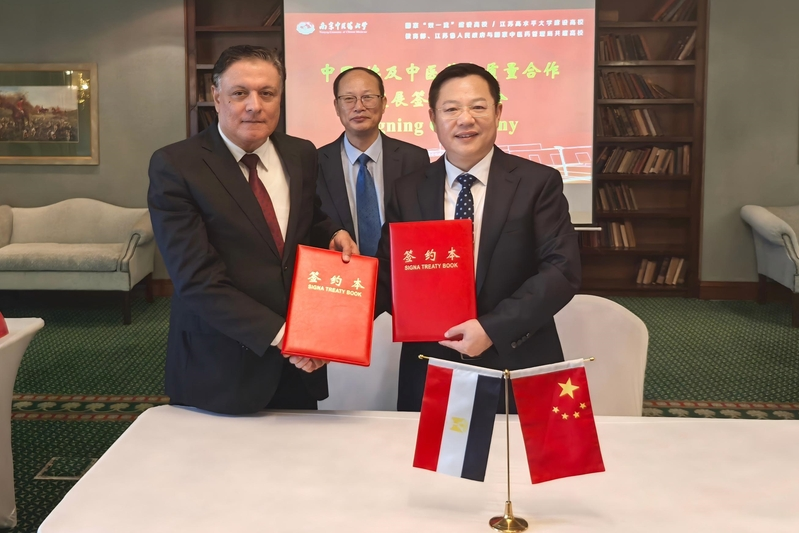
President Cheng Haibo, on behalf of NJUCM, signs a cooperation agreement with the Egyptian Chinese Friendship Association
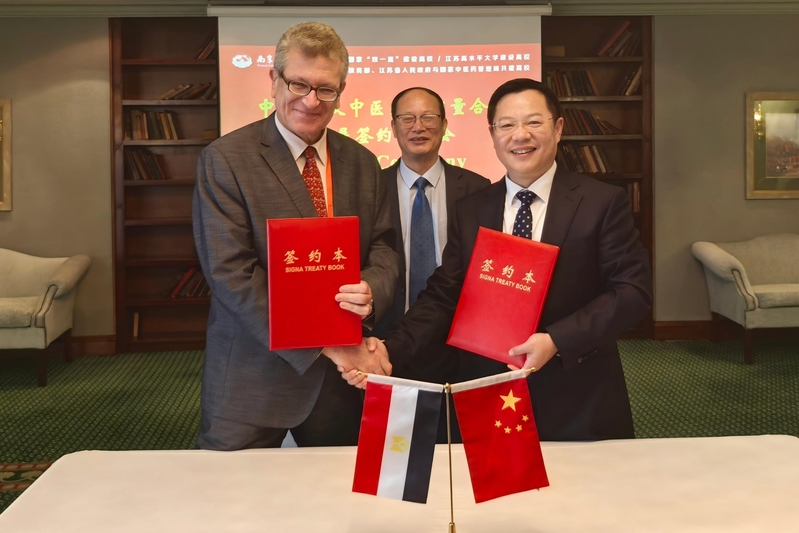
President Cheng Haibo, on behalf of NJUCM, signs a cooperation agreement with the Egyptian Association of Traditional Chinese Medicine
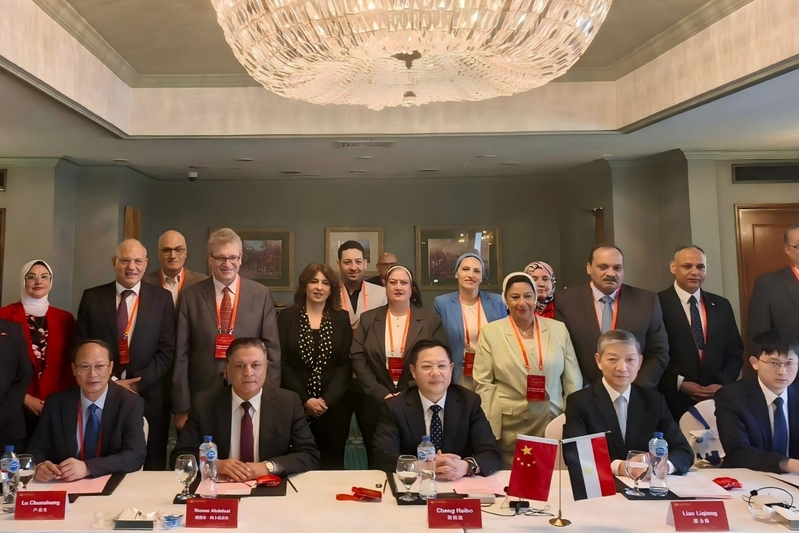
Group photo of the participants
As two ancient civilizations sharing common development goals and broad strategic interests, China and Egypt will celebrate the 70th anniversary of diplomatic relations in 2026, marking a new phase of cooperation. This seminar serves as a concrete action to implement the outcomes of the Forum on China–Africa Cooperation (FOCAC) Beijing Declaration, further strengthening the partnership between NJUCM and Egyptian universities and institutions. It also opens up broader prospects for NJUCM’s integration into the high-quality development of the Belt and Road Initiative. Leveraging platforms such as the WHO Collaborating Centre for Traditional Medicine, the International Acupuncture Training Centre, and the Training Base for TCM Education in Asia, Africa, and Latin America, the university will continue to expand cooperation with Egypt and other Arab countries in traditional medicine—contributing the “NJUCM Solution” and “TCM Wisdom” to the building of a Global Community of Health for All.
Representatives from the President’s Office, Discipline Construction Office, Department of International Cooperation and Exchange, and School of Traditional Chinese Medicine of NJUCM attended the relevant activities.




